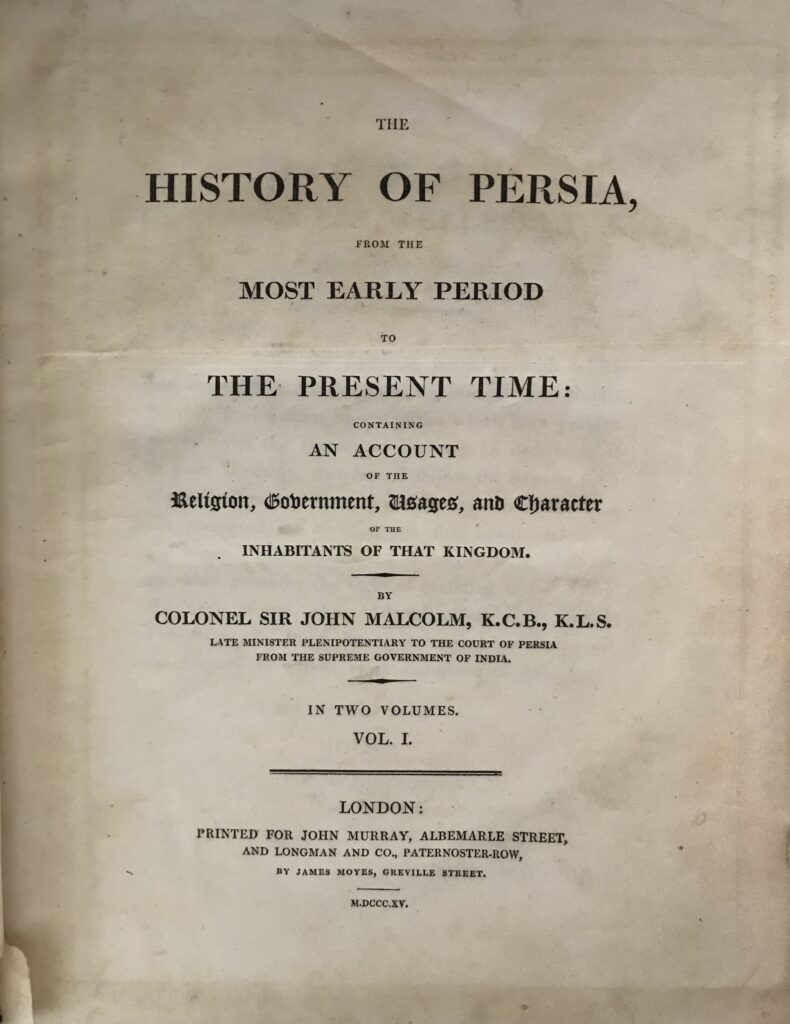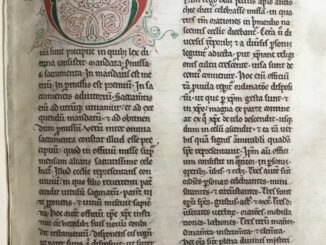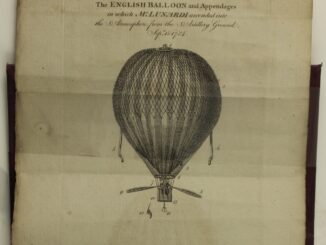Mark McKillion, Ulster University MA History graduate and volunteer for the Library in 2022, carried out research on the Sir John Malcolm’s The History of Persia, from the Most Early Period to the Present Time … (1815) (object ID P001428426).
You can adopt this book for £500, and support the work of the Library, caring for our wonderful collections, and inspiring present and future generations!
Sir John Malcolm is described by A.K.S Lambton as a prominent figure in the study of Persian history and culture, a notion which is corroborated by Malcolm’s missions to the country during the early 19th century, followed by his authorship of the text, The History of Persia. As it is one of the first English-language accounts of this civilisation, Malcolm argues in favour of considering it “as an object of utility and importance” readily available for use by future scholars, particularly since his experience from visiting Persia “had greatly facilitated his progress in amassing information.”[1]
Furthermore, he begins the first few chapters with an introduction on the history of Persia, where he states that the ideal method of understanding a nation’s history to take a wide range of accounts into considerations, which also extends to fables and folklore, reasoning that these stories, “however extravagant, always merit attention,”[2] because they are directly intertwined with the cultures that they are associated with.
Indeed, Malcolm’s findings would be reproduced by various scholars and institutions covering the history of Persia, with one such example being the University of Northern Iowa’s account of Alexander the Great: in this particular case, the extract highlights how near the end of his life, Alexander declared that his heritage should ideally be passed down to those “who had never seen the miseries of this world, and who had never lost those that were dear to them,” thereby providing a consolation for his mother in finding common ground among all people who had also experienced the grief of loss.[3]
In contrast, other scholars place more emphasis on the wider scale of Persian history, with Edward G. Browne choosing to focus on the city of Isfahan, which he describes as a place that is reflective of “the excellence of its inhabitants, their obedience to constituted authority, and their talents:” furthermore, Browne also cites the jurisconsult Muhammad Abdús, who describes the Isfahani as a people “whose plains are all saffron and whose mountains are all honey, and in each of whose houses is a fountain of sweet, pure water!”[4]




